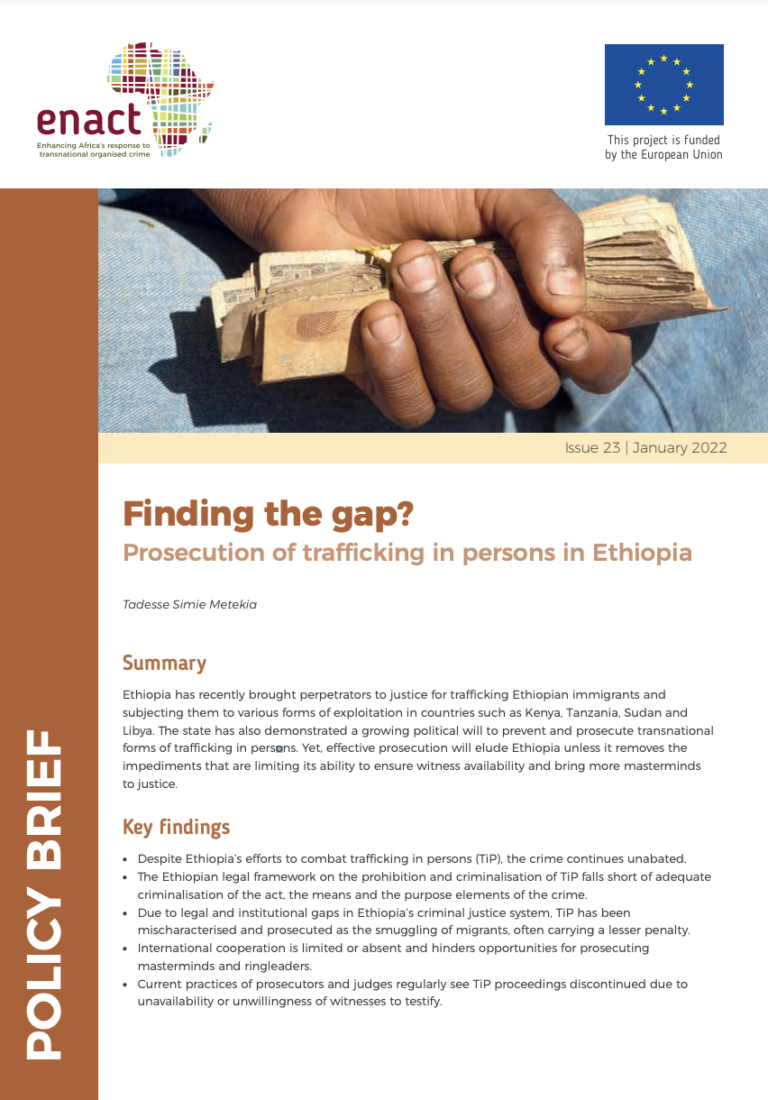Ethiopia has recently brought perpetrators to justice for trafficking Ethiopian immigrants and subjecting them to various forms of exploitation in countries such as Kenya, Tanzania, Sudan and Libya. The state has also demonstrated a growing political will to prevent and prosecute transnational forms of trafficking in persons. Yet, effective prosecution will elude Ethiopia unless it removes the impediments that are limiting its ability to ensure witness availability and bring more masterminds to justice.
Key findings
∙ Despite Ethiopia’s efforts to combat trafficking in persons (TiP), the crime continues unabated.
∙ The Ethiopian legal framework on the prohibition and criminalisation of TiP falls short of adequate criminalisation of the act, the means and the purpose elements of the crime.
∙ Due to legal and institutional gaps in Ethiopia’s criminal justice system, TiP has been mischaracterised and prosecuted as the smuggling of migrants, often carrying a lesser penalty.
∙ International cooperation is limited or absent and hinders opportunities for prosecuting masterminds and ringleaders.
∙ Current practices of prosecutors and judges regularly see TiP proceedings discontinued due to unavailability or unwillingness of witnesses to testify

